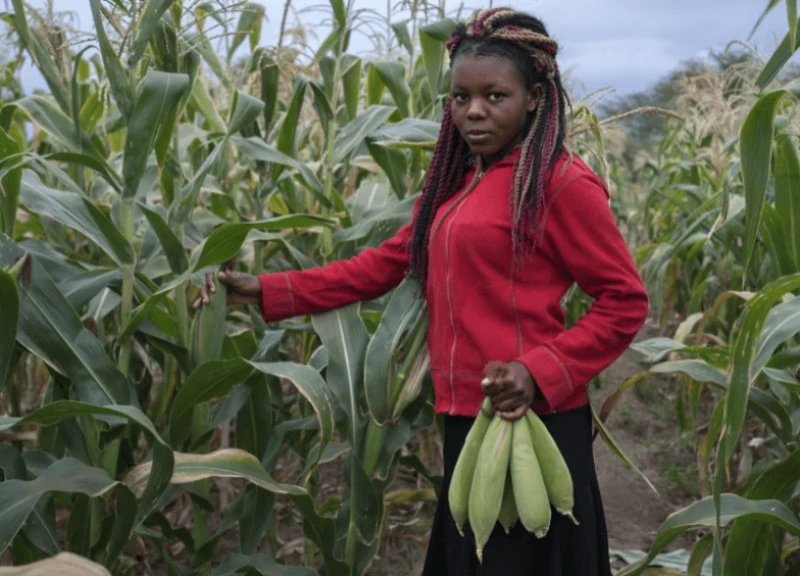Viewpoint: African nations must take on the responsibility of developing agricultural innovations as well as benefiting from them
Viewpoint: African nations must take on the responsibility of developing agricultural innovations as well as benefiting from them


The Head of AUDA-NEPAD flagship biosafety programme, Samuel Edudzi Timpo, has implored African states and governments not to wait to only become buyers of genome editing (GEd) technology products but to become active participants in the development and usage of emerging modern biotechnology tools.
He said the GEd technology offers a cost-effective method of seed breeding that could be used to develop crop varieties that could withstand environmental stresses, including pests and diseases as well the changing climatic conditions.
These techniques are being used for crops such as rice, tomato, maize, sugarcane, soybean and potato to confer pest and disease resistance, higher resilience to abiotic stress, higher nutrient use efficiency and increased yield potential, and in animals like poultry, sheep, goat, cattle and pigs for increased disease resistance, better adaptation to farming or environmental conditions and enhanced animal welfare.
Mr. Timpon expressed the concern that it would be disappointing should African nations wait for other nations to develop and reap the benefits in GEd technology before it would consider it.
“This is the problem of Africa; we tend to wait for others to go far…and by the time we realise it is okay, we become buyers,” he noted.
This is an excerpt. Read the original post here

 | Videos | More... |

Video: Nuclear energy will destroy us? Global warming is an existential threat? Chemicals are massacring bees? Donate to the Green Industrial Complex!
 | Bees & Pollinators | More... |

GLP podcast: Science journalism is a mess. Here’s how to fix it

Mosquito massacre: Can we safely tackle malaria with a CRISPR gene drive?

Are we facing an ‘Insect Apocalypse’ caused by ‘intensive, industrial’ farming and agricultural chemicals? The media say yes; Science says ‘no’
 | Infographics | More... |

Infographic: Global regulatory and health research agencies on whether glyphosate causes cancer
 | GMO FAQs | More... |

Why is there controversy over GMO foods but not GMO drugs?

How are GMOs labeled around the world?

How does genetic engineering differ from conventional breeding?
 | GLP Profiles | More... |

Alex Jones: Right-wing conspiracy theorist stokes fear of GMOs, pesticides to sell ‘health supplements’




 Viewpoint — Fact checking MAHA mythmakers: How wellness influencers and RFK, Jr. undermine American science and health
Viewpoint — Fact checking MAHA mythmakers: How wellness influencers and RFK, Jr. undermine American science and health Viewpoint: Video — Big Solar is gobbling up productive agricultural land and hurting farmers yet providing little energy or sustainabilty gains
Viewpoint: Video — Big Solar is gobbling up productive agricultural land and hurting farmers yet providing little energy or sustainabilty gains Fighting deforestation with CO2: Biotechnology breakthrough creates sustainable palm oil alternative for cosmetics
Fighting deforestation with CO2: Biotechnology breakthrough creates sustainable palm oil alternative for cosmetics Trust issues: What happens when therapists use ChatGPT?
Trust issues: What happens when therapists use ChatGPT? California, Washington, Oregon forge immunization alliance to safeguard vaccine access against federal undermining
California, Washington, Oregon forge immunization alliance to safeguard vaccine access against federal undermining 30-year-old tomato line shows genetic resistance to devastating virus
30-year-old tomato line shows genetic resistance to devastating virus The free-range chicken dilemma: Better for birds, but with substantial costs
The free-range chicken dilemma: Better for birds, but with substantial costs ‘You have to treat the brain first’: Rethinking chronic pain with Sanjay Gupta
‘You have to treat the brain first’: Rethinking chronic pain with Sanjay Gupta
